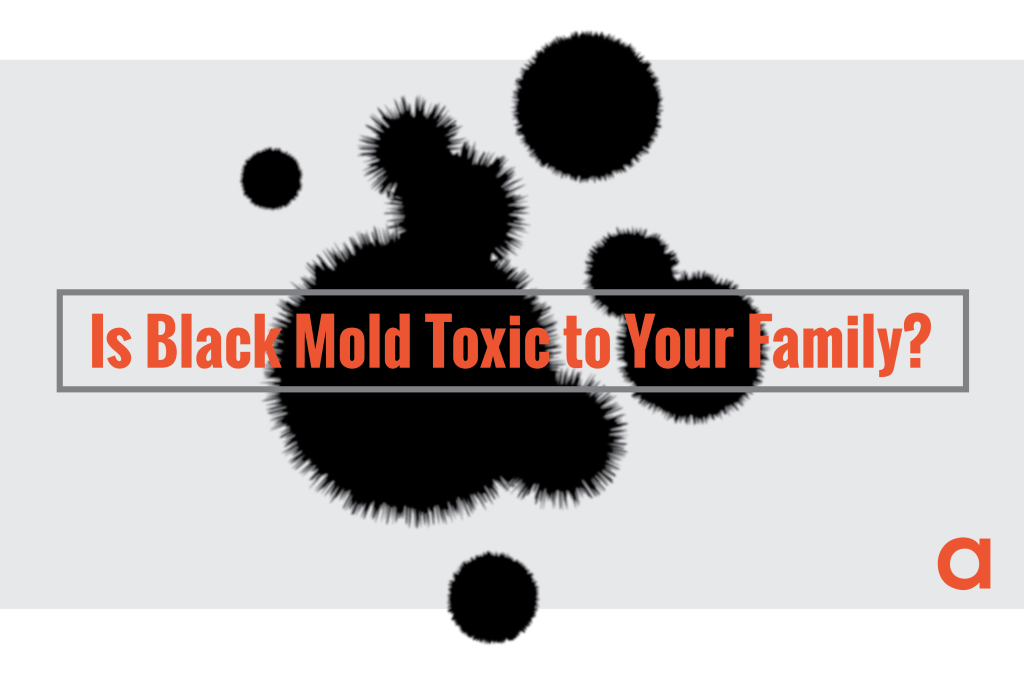
Black mold, or stachybotrys chartarum, is often referred to as “toxic” black mold. That’s because it produces trichothecene mycotoxins.
Mycotoxins are nasty poisons that can cause serious health problems and even death. Mycotoxins from fungi like black mold have been associated with health issues including:
- Respiratory symptoms
- Circulatory symptoms
- Skin problems
- Reproductive system problems
- Vision and eye problems
- Immune system problems
The trichothecene mycotoxins produced by stachybotrys chartarum black mold are neurotoxic, which means they disrupt or destroy neurons in the brain and nervous system. Neurological damage can result in a wide array of severe health problems, mental impairment, mood swings and even personality changes. Symptoms of neurological damage can include:
- Diminished concentration
- Slowed reflexes
- Disorientation
- Dizziness
- Tingling
- Trembling
- Seizures
- Numbness
- Memory loss and memory problems
- Impaired learning ability
- Shortened attention span
- Hallucinations
- Anxiety
- Depression
- Aggression and other personality changes
If you see signs of black mold or any other kind of fungus on your property, you should investigate promptly. If you suspect mold problems in difficult-to-reach areas that you cannot check safely, you should call a mold testing and remediation specialist.
While the risks of some more serious health problems associated with mycotoxins are relatively low, the consequences of exposure could be catastrophic. Don’t gamble with your family’s or employees’ health. Act swiftly to eradicate mold on your property.

